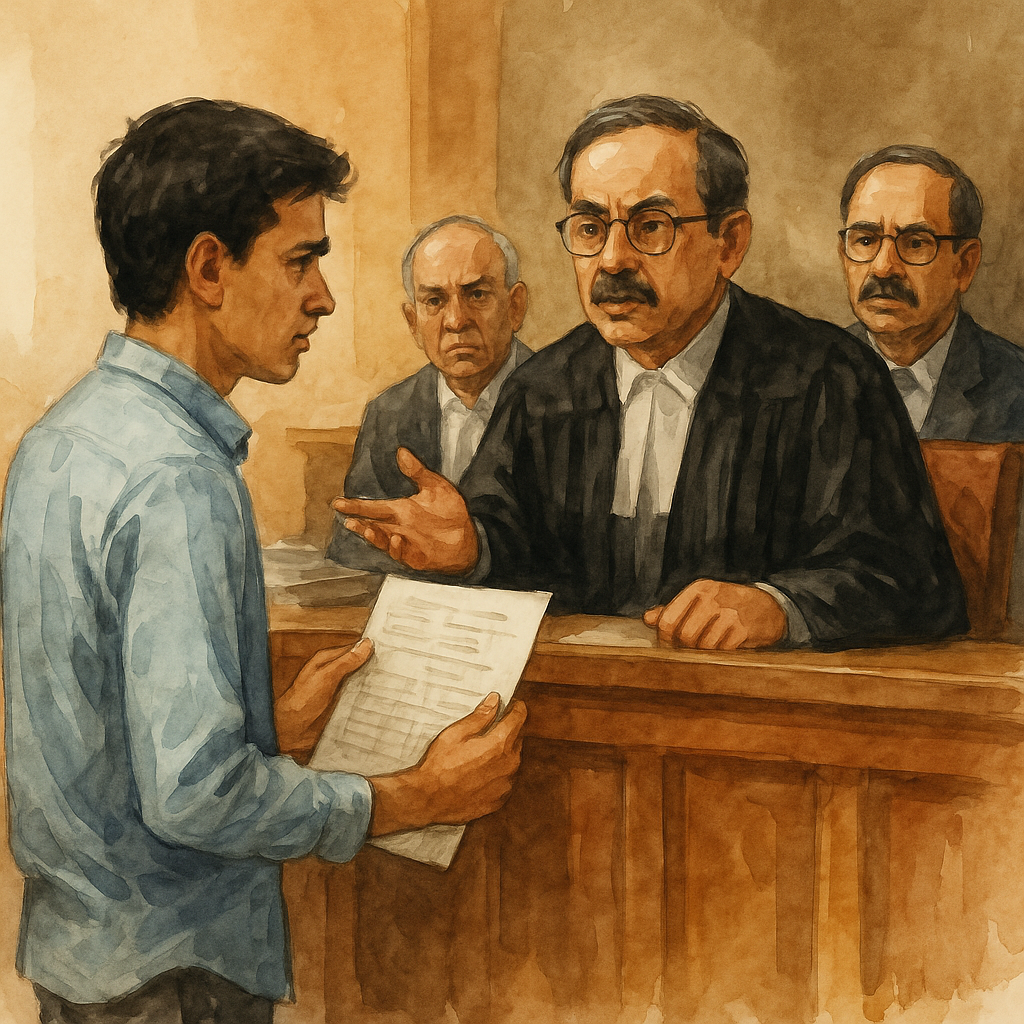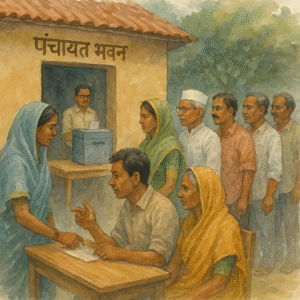The Patna High Court has dismissed a writ petition filed by a university student seeking publication of results and re-evaluation of answer scripts arising out of a 2016 undergraduate examination. The case involved allegations of tabulation tampering at the university’s exam centre, the student’s claim of wrongful marking, and a plea for re-evaluation despite the university’s stated lack of such a provision. Hon’ble Mr. Justice Rajeev Ranjan Prasad delivered the C.A.V. judgment on 10 March 2021, refusing to issue directions in the nature of mandamus and leaving the university’s expert bodies’ decisions undisturbed.
The petitioner, a B.Sc. (Chemistry Honours) student, had cleared Parts I and II on paper and was promoted to Part III, but his Part III result was withheld. He approached the Court seeking (i) publication of his result, (ii) re-evaluation or rechecking of his Part II answer scripts—particularly Paper IV—and (iii) correction of alleged tabulation errors that, according to him, arose because the examiner marked his script using a canceled question paper rather than the re-examination paper. He relied on material obtained under the Right to Information Act to point out discrepancies between marks awarded on the script and marks carried into the tabulation sheet.
The university opposed the petition, asserting that the student had in fact failed in Part II (2016), scoring 48 in Paper III and 16 in Paper IV—i.e., a total of 64 against the 67 required to pass the combined papers. The university placed on record that a 2018 inquiry had exposed widespread tampering in the tabulation register at an affiliated college, where certain failed students were shown as “promoted.” The petitioner’s case, it said, was one such instance: tabulators allegedly added three marks to Paper IV (from 16 to 19) to push the total from 64 to the minimum 67. A committee constituted by the Vice-Chancellor recommended cancellation of such tainted results, and the Examination Board resolved to follow that recommendation. An FIR was also lodged; investigation remained pending.
Upon examining the materials, the Court noted that while the marksheet showed 19 in Paper IV and a total of 67 for Papers III & IV, the evaluated answer script itself reflected only 16 for Paper IV. The Court’s perusal of the Paper IV script further revealed that some answers did not tally with the re-examination question paper, and several items carried zero marks. One answer matched the paper and received 5 marks; another was mis-numbered by the candidate, and despite 3 marks being awarded against that answer, the first-page tally showed “13” for that question, which did not match the internal marking. The Court found no basis to accept the assertion that the script had been marked on the basis of the canceled question paper.
Given the expert committee’s findings about irregularities and the Examination Board’s decision to adopt those findings, the Court held that it would not act as an appellate authority over academic assessment decisions, especially when those decisions themselves were not under challenge in the writ. The Court also recorded the university’s categorical stand that there was no provision for re-evaluation of answer scripts. In the circumstances, the writ petition lacked merit and was dismissed.
Significance or Implication of the Judgment
This decision underscores a consistent judicial approach: courts exercise restraint in interfering with academic evaluations unless there is a clear legal infirmity, violation of natural justice, or bad faith. For students, the judgment is a reminder that re-evaluation is not a matter of right unless university statutes or regulations provide for it. Merely alleging “wrong marking” is insufficient, particularly where the record shows discrepancies supporting the institution’s version.
For universities and examining bodies, the ruling affirms their authority to investigate and remedy malpractice, including tabulation tampering. Once an expert committee identifies irregularities and the Examination Board adopts its recommendations, courts are inclined to defer to such determinations, provided procedural fairness is observed. The case also demonstrates that where the primary material (the evaluated script) contradicts a later tabulation or marksheet, the script prevails. Finally, it signals that pending criminal investigations arising from examination fraud do not halt internal academic rectification—both can proceed in their respective spheres.
Legal Issue(s) Decided and the Court’s Decision with Reasoning
- Whether the Court should direct publication of the petitioner’s Part III result when Part II status was disputed
Decision: No. The university showed that the petitioner had failed in Part II (combined Papers III & IV required 67; he had 64 on the evaluated scripts). Without clearing Part II, there was no occasion to publish Part III. The Court accepted the academic record reflected in the answer scripts over the marksheet. - Whether re-evaluation or rechecking could be ordered
Decision: No. The university asserted there was no provision for re-evaluation, and the Court found no ground to compel it. Courts generally refrain from directing re-evaluation absent a statutory framework or demonstrable illegality. - Effect of alleged tabulation tampering and the university’s expert findings
Decision: The Court deferred to the Vice-Chancellor-appointed committee and the Examination Board’s resolution recommending cancellation/rectification of tampered results, seeing them as expert determinations within academic domain. - Whether the script was marked using a canceled question paper
Decision: The Court found no evidence of that; rather, the answers did not tally with the re-examination paper in multiple places, and internal marks did not match the first-page tally recorded by the candidate.
Judgments Referred by Parties (with citations)
- Ashutosh Kumar Karn v. Tilka Manjhi Bhagalpur University & Ors., 2017 (2) PLJR 468 — distinguished on facts by the Court.
- Sweta Kumari & Ors. v. The Magadh University & Ors., C.W.J.C. No. 6281 of 2018, disposed of on 15.05.2018 — held inapplicable on the present facts.
Judgments Relied Upon or Cited by Court (with citations)
- The Court discussed and distinguished the above authorities; it primarily relied on the principle of judicial deference to academic bodies’ expert decisions and the absence of a re-evaluation provision. (No additional external precedents were applied.)
Case Title
Deepak Kumar v. The Baba Saheb Bhimrao Ambedkar Bihar University, Muzaffarpur & Ors.
Case Number
Civil Writ Jurisdiction Case No. 8315 of 2019.
Citation(s)
2021(2) PLJR 200
Coram and Names of Judges
Hon’ble Mr. Justice Rajeev Ranjan Prasad.
Names of Advocates and who they appeared for
- For the petitioner: Mr. Lakshmi Kant Tiwary, Advocate; Mr. Nitesh Kumar, Advocate.
- For the respondents (University): Mr. Sandeep Kumar, Advocate; Mr. Indrajesh Kumar, Advocate.
Link to Judgment
MTUjODMxNSMyMDE5IzEjTg==-Q1LAYIW–ak1–X7k=
If you found this explanation helpful and wish to stay informed about how legal developments may affect your rights in Bihar, you may consider following Samvida Law Associates for more updates.








